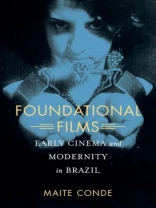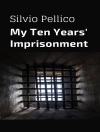In her authoritative new book, Maite Conde introduces readers to the crucial early years of Brazilian cinema. Focusing on silent films released during the First Republic (1889-1930),
Foundational Films explores how the medium became implicated in a larger project to transform Brazil into a modern nation. Analyzing an array of cinematic forms, from depictions of contemporary life and fan magazines, to experimental avant-garde productions, Conde demonstrates the distinct ways in which Brazil’s early film culture helped to project a new image of the country.
Innehållsförteckning
Illustrations
Acknowledgments
Introduction: The Modern Foundations of Brazilian Cinema
Part I. Locating the Belle Epoque of Brazilian Cinema
1. Early Cinema and National Identity in Brazil: Mapping Out a Space of Analysis
2. Cinematic Vistas of Rio de Janeiro’s Worldly Modernity
3. Alternative Urban Projections in Early Narrative Films
Part II. Hollywood Revisions
4. Film and Fandom in Cinearte Magazine
5. Beyond Hollywood: Reading Slave Relations in Humberto Mauro’s Lost Treasure (1927)
Part III. The Rondon Commission: Producing New Visions of the Amazon
6. Picturing the Tropics: Forging a National Territory through Photography and Film
7. The Expedition Films of Major Luiz Thomaz Reis
Part IV. Modernism and the Movies
8. Modernismo’s Literary Engagements with Film
9. The Cine-Poetry of Mário Peixoto’s Limite
10. Fabricating Discipline and Progress in São Paulo, Symphony of a Metropolis
Postscript: Toward New Cinematic Foundations
Notes
Filmography
Bibliography
Index
Om författaren
Maite Conde is University Lecturer in Brazilian Culture at the University of Cambridge, England and Fellow at Jesus College, Cambridge. She is author of Consuming Visions: Cinema, Writing, and Modernity in Rio de Janeiro.












